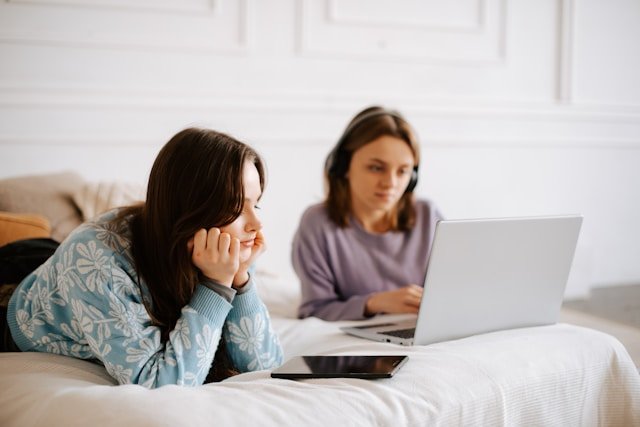Is Online Counselling Session Right for You? Here’s What Experts Say

As mental health becomes a growing priority in India, more people are exploring therapy—but many are unsure about starting online. Is it as effective as in-person sessions? What happens during a session? Is it safe, or even necessary?
To separate fact from fiction, we spoke to licensed mental health professionals affiliated with Click2Pro. In this Q&A-style editorial, they answer the most common questions Indians have about beginning an online counselling session—especially for the first time.
If you’ve been considering therapy but don’t know where to begin, start here.
❓Q1: Is online therapy really effective—or is it just a “lockdown trend”?
Expert Response:
This is a fair question. Online counselling exploded during COVID-19, but it’s here to stay—not because it’s trendy, but because it’s proven effective.
Globally, studies show that online therapy is just as successful as face-to-face counselling for conditions like:
- Depression
- Anxiety
- Trauma
- Relationship conflicts
- Work-related stress
In India, where access to good therapists has long been limited to big cities, digital therapy is breaking down barriers. You can now receive structured, private, and culturally relevant support from anywhere—even remote towns or college dorms.
❓Q2: How is an online counselling session structured?
Expert Response:
A typical session lasts 45–60 minutes. After booking through a platform like Click2Pro, you’ll receive a video or audio link via Zoom or another secure service.
The first session usually involves:
- Understanding your emotional history
- Identifying what brought you to therapy
- Discussing your expectations and personal goals
- Setting a tone of safety and consent
From the second session onward, your therapist may use techniques like CBT, mindfulness, trauma-focused therapy, or behavioral restructuring. It’s not just “talking”—it’s guided emotional work led by trained experts.
❓Q3: What if I feel anxious about talking to a stranger online?
Expert Response:
This is incredibly common, especially for first-timers. But here’s the truth:
You don’t need to be articulate, emotionally stable, or “ready.”
You just need to show up honestly.
The therapist’s job is to help you feel safe. You can start slowly—maybe by just sharing what’s bothering you in the present. Over time, as trust builds, so will your willingness to open up.
In fact, many clients find it easier to be vulnerable during an online counselling session than in person. Why? Because they’re in their own space, without worrying about awkward eye contact or stigma.
❓Q4: Can online therapy handle complex issues like trauma or identity struggles?
Expert Response:
Absolutely. Today’s online therapists are trained in advanced interventions—even for deep-rooted concerns.
Some common issues treated successfully online include:
- Panic attacks
- Intergenerational trauma
- Childhood neglect or abuse
- Workplace burnout
- Self-esteem issues
- Fear of abandonment
- Perfectionism
- Identity confusion (including gender and sexuality)
- Fear of failure rooted in parenting or social pressure
Online counselling isn’t a “lite” version of therapy—it’s full-spectrum psychological care. What matters most is not the medium, but the match between you and your therapist.
❓Q5: How do I know if I’m choosing the right therapist?
Expert Response:
The best way is to look at credentials and specialization. At Click2Pro, for instance, clients can view:
- Education and license of the psychologist
- Languages spoken
- Areas of expertise (e.g., anxiety, relationships, LGBTQIA+ support)
- Client reviews and testimonials
You can even choose region-based support. For instance, a Best Psychologist Counsellor in Delhi will likely be familiar with issues like:
- Urban stress
- Interpersonal conflict in nuclear families
- Performance anxiety
- Loneliness despite social life
- Digital fatigue and overstimulation
Choosing a therapist who understands both your clinical and cultural context is the key to results.
❓Q6: What if I don’t have anything “serious” going on—should I still try therapy?
Expert Response:
This is a myth that stops many people from getting help.
You don’t need a mental health “crisis” to benefit from therapy. In fact, catching emotional distress early makes healing faster and smoother.
Here are subtle signs that an online counselling session might help:
- Constant overthinking
- Snapping at loved ones over minor issues
- Trouble making decisions
- Feeling stuck in routines
- Procrastinating on important goals
- Sleep problems or appetite changes
- Worrying excessively about disappointing others
You wouldn’t wait for your teeth to fall out to visit a dentist—why wait until breakdown to seek emotional help?
❓Q7: Is it safe to talk about personal trauma online?
Expert Response:
Yes. Online therapy platforms like Click2Pro use secure, encrypted video conferencing software. Sessions are fully confidential, and therapists are legally and ethically bound by strict privacy rules.
You can also request:
- Gender-specific therapists
- Language preferences (Hindi, English, Bengali, etc.)
- Flexibility in timings (evening or weekend sessions)
If you’re discussing sensitive matters—like sexuality, financial stress, or family abuse—online sessions offer a level of anonymity and psychological safety that traditional therapy can’t always match.
❓Q8: What results can I realistically expect from online therapy?
Expert Response:
Therapy isn’t instant, but it is impactful.
In 4–8 sessions, most clients begin to:
- Understand their emotional patterns
- Improve communication with others
- Reduce anxiety or sadness
- Increase clarity around decisions
- Feel more self-compassion and control
Long-term results depend on:
- Consistency
- Therapist–client rapport
- Willingness to do inner work between sessions
It’s not a magic fix—it’s a powerful tool. And the first session is often the hardest part.
💬 Final Thoughts: Still Hesitating? You’re Not Alone—But You Don’t Have to Stay There.
It’s okay to be unsure. It’s okay to feel like your problem isn’t “big enough.”
What matters is this: you’re here, looking for help.
A Best Psychologist Counsellor in Delhi or therapist across India can help you move from surviving to thriving—all through secure, convenient, and culturally competent sessions.
You deserve to feel better. You deserve to stop carrying it all alone.
Your journey begins with one click—and one honest conversation.

